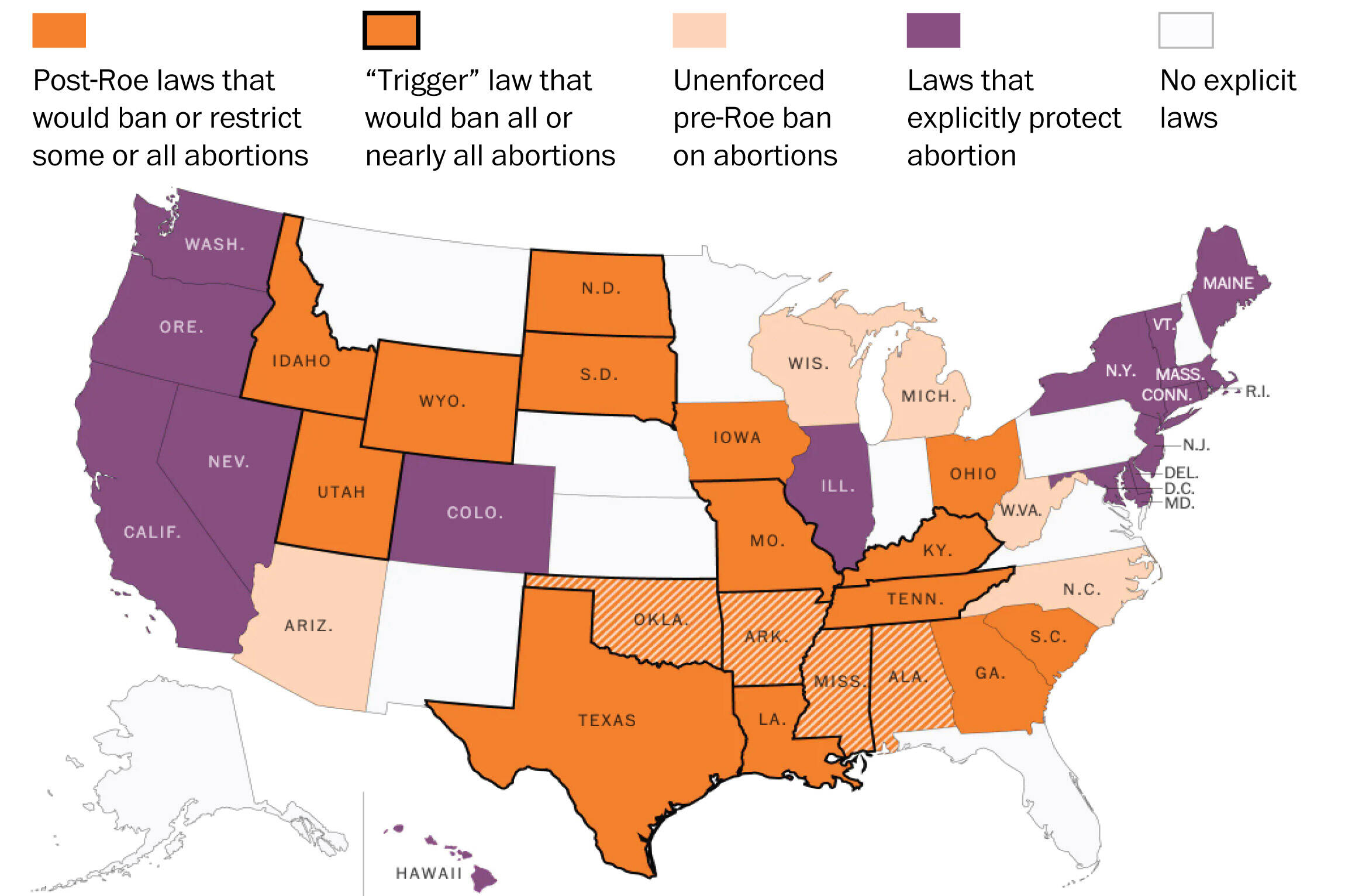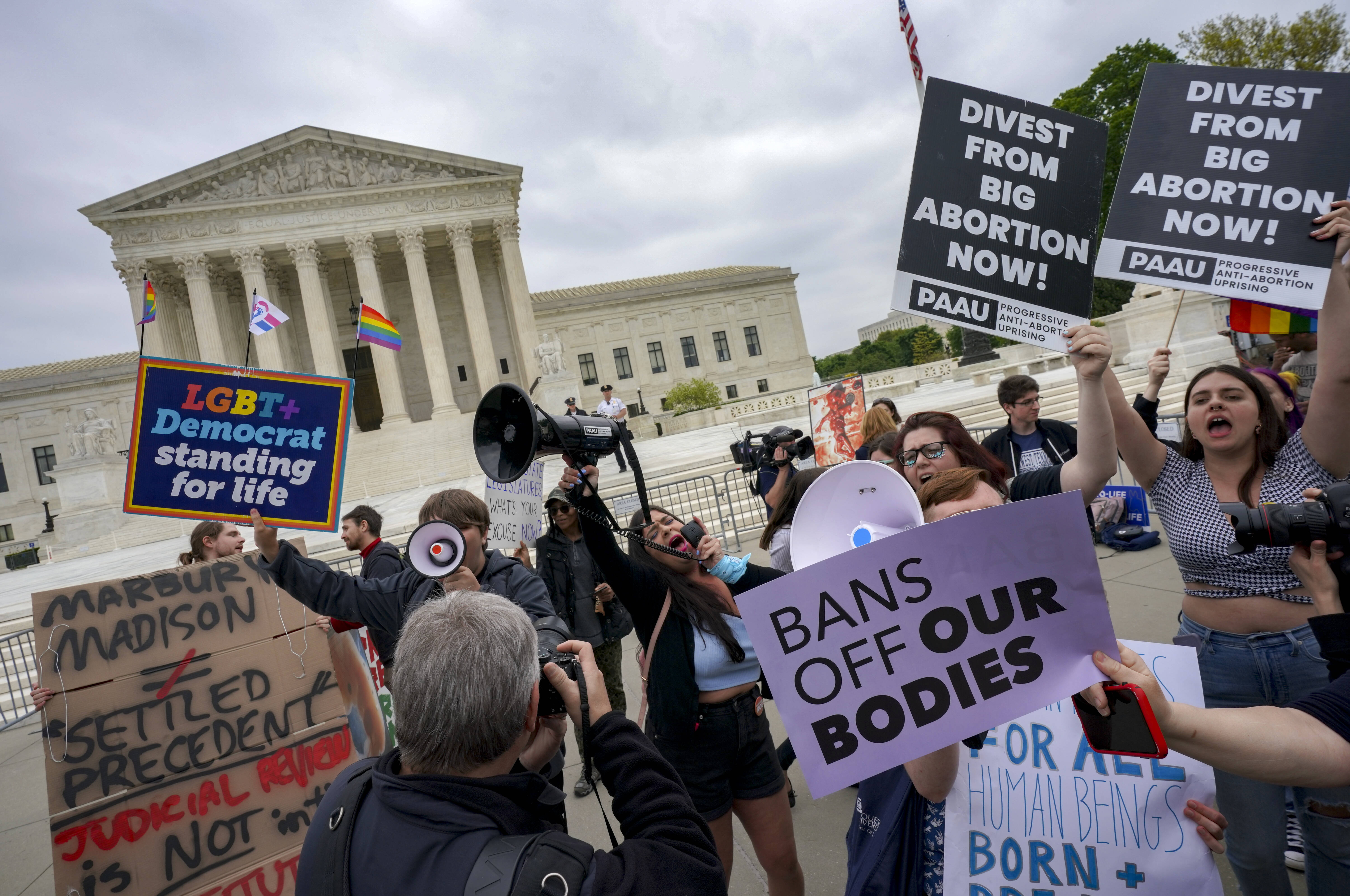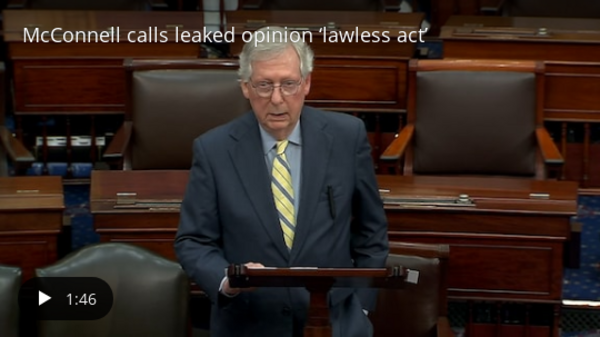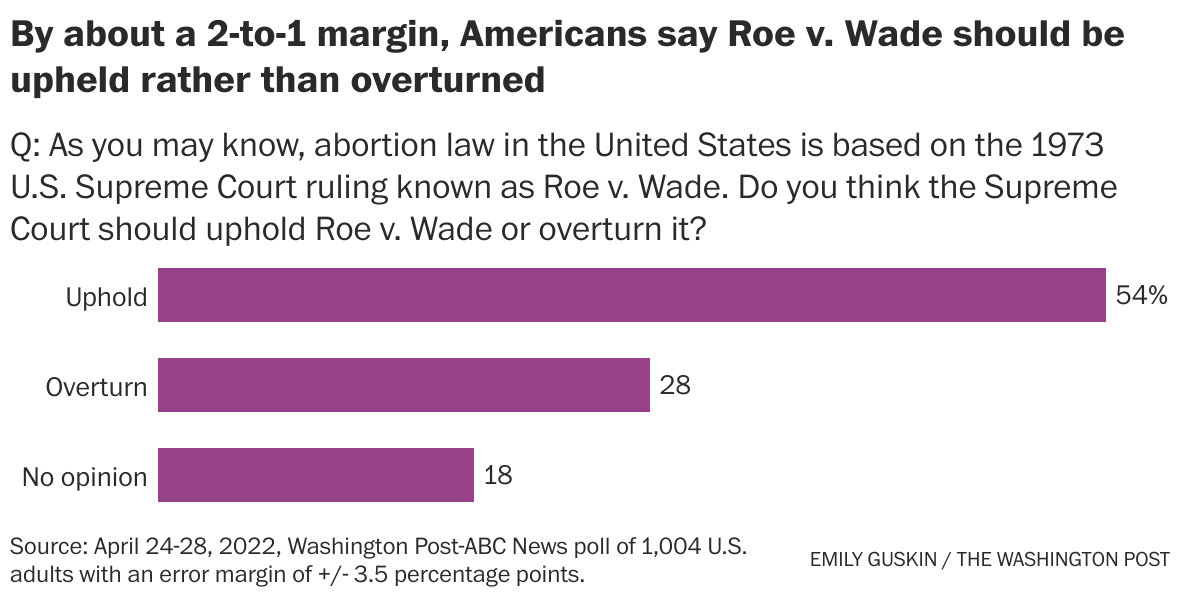| The Supreme Court hasn't finalized an abortion decision yet. But now it's probable — not just possible — that the court will announce this summer it is ending the only federal abortion protections by overturning its 1973 Roe v. Wade decision guaranteeing the right to an abortion until about 22 to 24 weeks of pregnancy. Politico obtained a draft opinion by a conservative justice arguing to end Roe v. Wade entirely. The fact it was written at all suggests there are enough justices willing to vote to do that. The draft opinion is legitimate, the court confirmed, while stressing that it doesn't represent the final votes of any justice. What the end of Roe would mean: Abortion is left up to the states to regulate entirely to their own will, and that would mean abortion could become very difficult to obtain or even outright illegal in about half of the country, in states mostly concentrated in the South and Midwest.  States that would ban abortion upon the Supreme Court ending Roe. (Daniela Santamariña/The Washington Post) (Daniela Santamarina/The Washington Post) | A quick reminder on how we got here: During his four years in office, President Donald Trump and Senate Republicans installed three conservative Supreme Court justices, with Trump promising they would be opponents of abortion rights. Sure enough, this fall the court declined to strike a strict abortion ban in Texas from the books. Then it heard arguments in December on a Mississippi abortion ban after 15 weeks of pregnancy. The fact they chose to hear the Mississippi case suggested they were open to rolling back the Roe v. Wade standard to at least 15 weeks of pregnancy. But this draft opinion by Justice Samuel Alito stretches much further than court observers thought the Supreme Court would go. He argues that there is no constitutional right to an abortion, period. At least four justices would need to agree with him to knock down Roe v. Wade entirely. We'll find out this summer whether that's the case. What's all this uproar about a 'leak'? Only a few times in history have we learned what the Supreme Court may decide on a case before the court is ready to announce it. Monday night was one of those times. Only a small number of people in the court have access to these opinions, and someone at the court gave Alito's February draft opinion to Politico, in an apparent effort to alert the public about what the court may soon do, or to pressure the court not to end Roe.  Demonstrators outside the Supreme Court on Tuesday. (Bonnie Jo Mount/The Washington Post) | So, is this leak a big problem? Conservatives are hyper-focused on this, seemingly even more so than the fact that they could reach the conservative holy grail of ending federal abortion rights in the United States. They and the Supreme Court argue that the traditional secrecy allows for authentic debate and for justices to change their minds, and they fear that open debate at the nation's highest court will be chilled because of this. Chief Justice John Roberts said there will be an investigation.  | | | But by focusing on the leak, conservatives are missing the point, liberals argue. The big headline is that the court seems ready to end 50 years of abortion protection in the United States. Their main argument is that a generation of women have grown up believing this protection would be there, and five conservative justices will override that. "Really? You think the whole issue is about a leak?" Sen. Elizabeth Warren (D-Mass.) told CNN. "This is about five extremist justices. … At least two of them swore up and down that they cared about the rule of law and Roe v Wade is settled law." How Americans feel about this Americans' thoughts on when abortion should be restricted is hard to pin down, in part because it requires a knowledge of the weeks of pregnancy, and legal terms such as "fetal viability" (when the fetus can live outside the womb) and thinking through really tough situations. But there is one question on abortion that Americans have been pretty consistent about over the past half-decade: They want Roe to remain in place. Fifty-four percent of Americans say the Supreme Court should uphold it, a Washington Post-ABC News poll conducted last week found. Just 28 percent believe it should be overturned, so that's about a 2-to-1 majority for upholding it.  (The Washington Post) | In addition, Americans overwhelmingly support permitting abortion in certain cases, such as when the patient's health is in danger, or for serious birth defects, or rape or incest. Republican legislators are moving in the opposite direction, to pass laws that ban abortion in almost all cases. What Democrats can do about it If a majority of Americans want Roe to stand, and Democrats control a majority in Congress and the presidency, what's to stop them from passing a federal law protecting abortion rights? The filibuster. In the Senate, Republicans can and will stop Democrats from codifying abortion rights. To overcome a filibuster requires 60 out of 100 votes; Democrats have only 50 votes. Or maybe less: Sen. Joe Manchin (D-W.Va.) says he opposes changing the filibuster for abortion, and he may not support codifying Roe into law anyway. (Two moderate Senate Republicans might support this, but would they really cross party lines for something this fraught?) Manchin already helped block Democrats' effort a few months ago to eliminate the filibuster to pass voting rights legislation. Democrats can and will try to win back power at the state level so they can extend abortion protections in individual states. But they have a long way to go — Republicans control almost two-thirds of state legislatures, compared with Democrats' one-third. What questions do you have about all this? I'll be hosting a live chat Wednesday at noon Eastern alongside The Post's Supreme Court reporter Robert Barnes, abortion politics reporter Caroline Kitchener and graphics reporter Daniela Santamariña. Join us here, and get your questions in now. | 






No comments:
Post a Comment